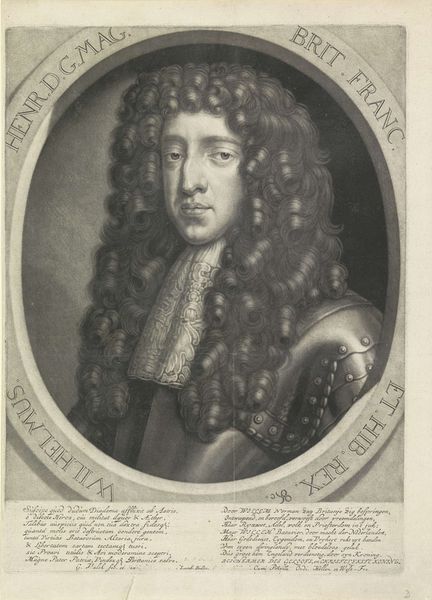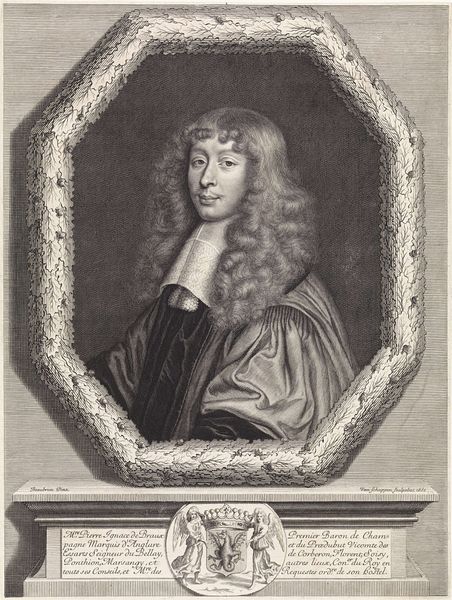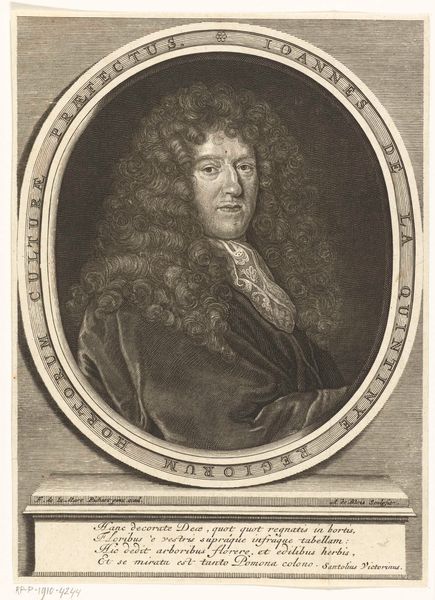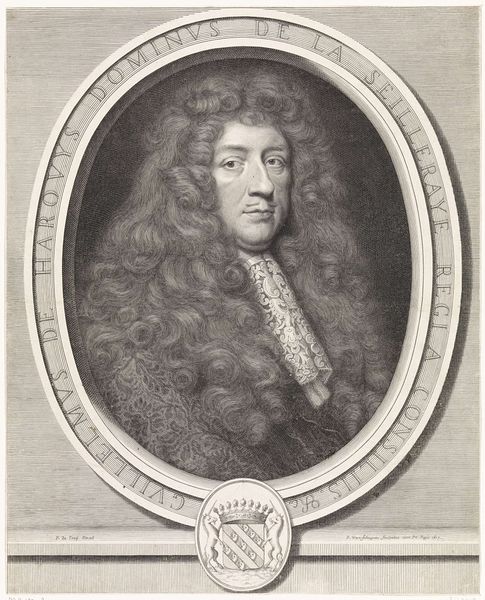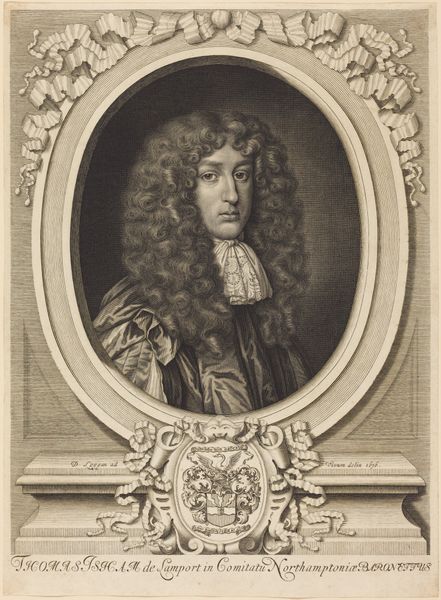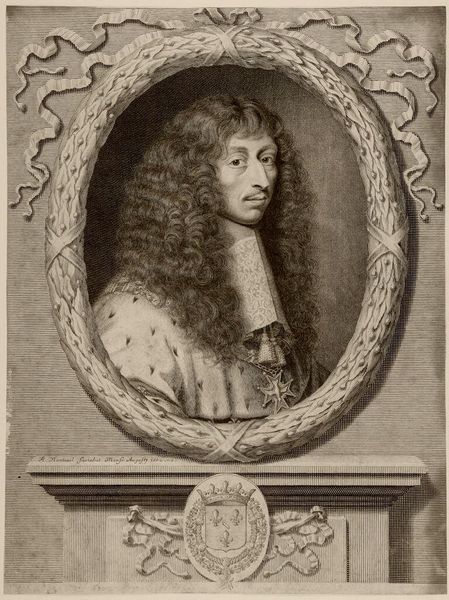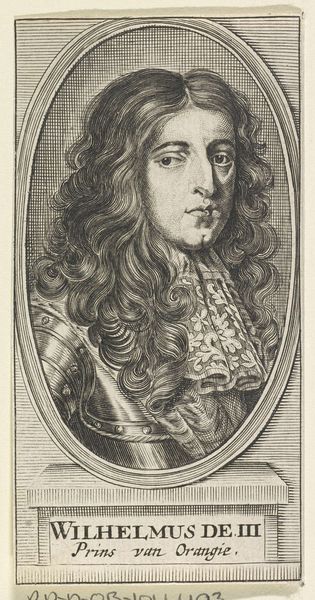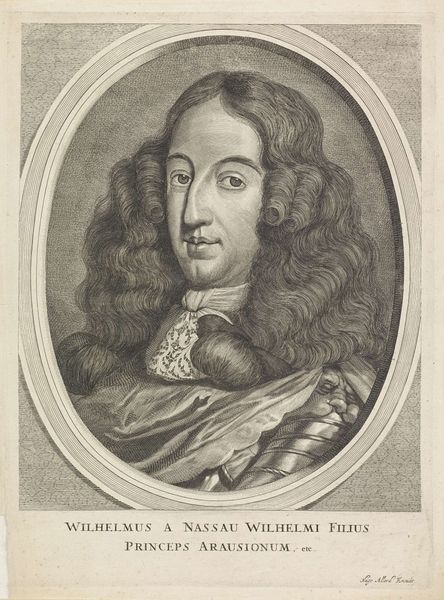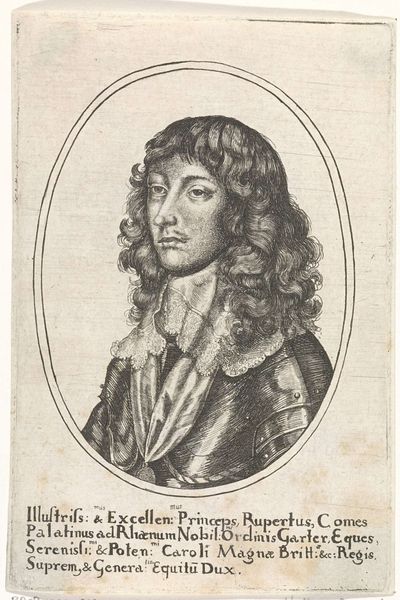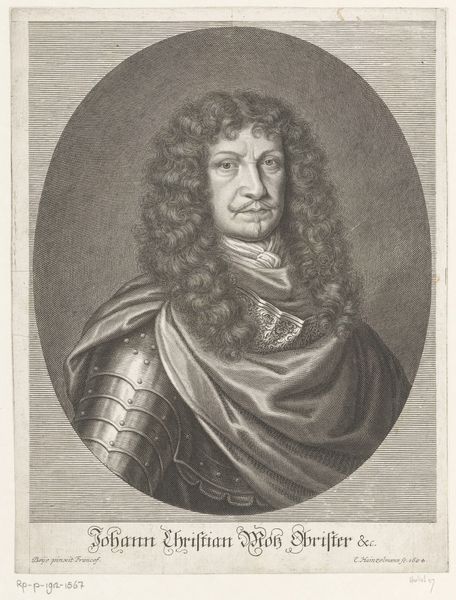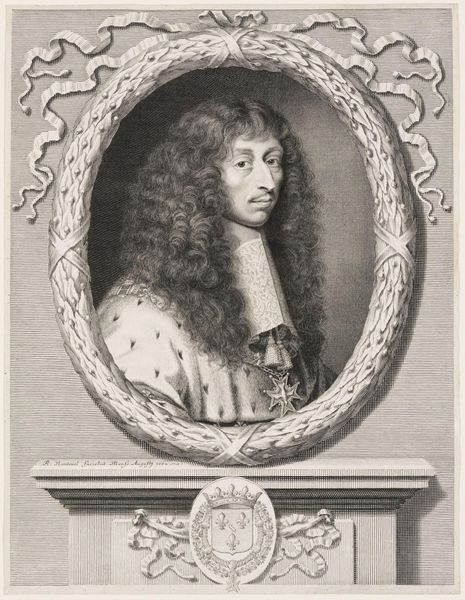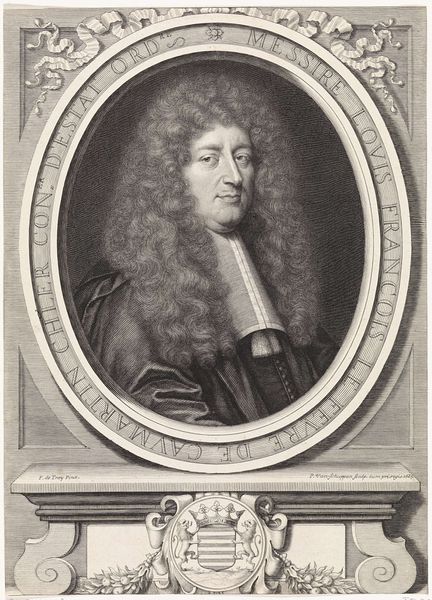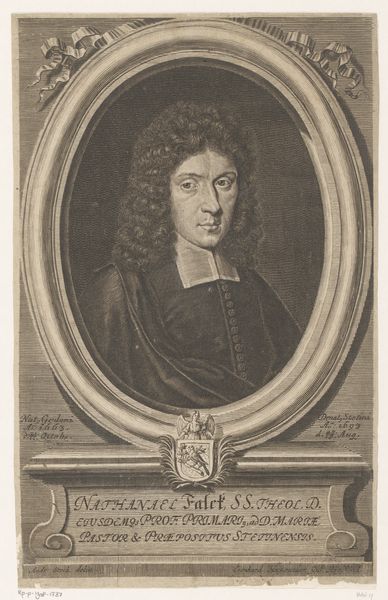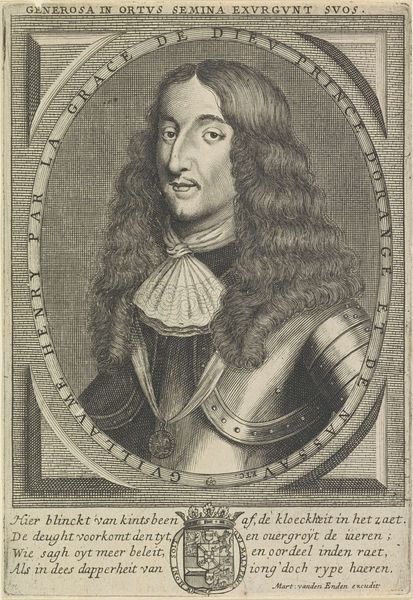
engraving
#
portrait
#
baroque
#
figuration
#
line
#
history-painting
#
engraving
Dimensions: height 163 mm, width 116 mm
Copyright: Rijks Museum: Open Domain
This portrait of James II, King of England and Scotland, was made by Theodor van Merlen, around the mid-17th century. It's an engraving, a printmaking process where lines are incised into a metal plate, which is then inked and pressed onto paper. Engraving demands careful planning and skilled execution. The artist uses tools to physically carve the image, a labor-intensive process that leaves a distinctive mark. Look at the density of lines that create shading and volume, especially in the King’s hair and armor. The texture of the paper also plays a role, interacting with the ink to create a slightly raised surface. The printmaking medium itself speaks to the era's burgeoning culture of dissemination and the distribution of power. Unlike a unique painting, an engraving allows for the mass production of images, making it a tool for propaganda and the projection of royal authority. Considering the material and the making of this artwork gives us insight into the social and political context of its time, inviting us to look beyond the subject matter and appreciate the artistry and intention behind its creation.
Comments
No comments
Be the first to comment and join the conversation on the ultimate creative platform.
